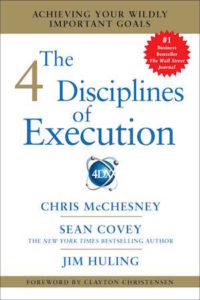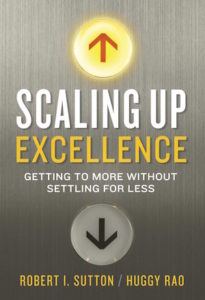I am asked fairly often what leadership or business books I think pastors should read. I sometimes hesitate to answer because some ministry leaders should not read another leadership book. If your devotional life is weak, if you are not addicted to reading the Bible, or if you want to treat the church like just another organization, you should run from business books.
If a pastor can more easily describe a marketing guru’s social media philosophy than clearly articulate the story of the Bible, I am concerned for the health of his soul and church. At the same time, the Lord does teach us through common grace, and leadership/business books contain observations of how people are organized and led.
In a parable, Jesus commented, “The sons of this age are more astute than the sons of light in dealing with their own people” (Luke 16:8). While we must not compare the bride of Christ to another organization, there are some helpful insights to be learned. Here are five business and leadership books I have recommended.
1. Leadership and the 1 Minute Manager
The book provides a helpful framework for leading each person on your team differently. Though not overtly Christian, the book positions the leader as the servant who adjusts to each person. A wise leader does not insist people adjust to his/her style, but rather, the leader adjusts to others.
2. Leading Change
Considered by many as the definitive work on change management, the book challenges leaders to create urgency before making changes. Before you can implement a solution, people must feel the pain of the status quo. Ministry leaders may find this book fascinating if read alongside the Book of Nehemiah, as we see how Nehemiah skillfully pointed to the disgrace of a ruined wall and cast a simple yet compelling vision.
3. Four Disciplines of Execution
Many ministry leaders rarely accomplish goals because they chase after too many at once. This book provides a helpful framework for setting important goals, attaching lead measures to those goals, and creating a cadence of accountability. Without accountability, people don’t believe a direction is really important.
4. The Leadership Code
Perhaps you have heard the cliché “leadership is leadership,” which advocates that if you can lead well in one environment, you can lead well in another. This book argues that 70% of leadership is transferable from one context to another. The 70% contains five key disciples: personally proficient, strategist, executor, talent manager, and human capital developer. This book challenges leaders to ensure they, and those they put in significant roles, are healthy and growing.
5. Scaling Up Excellence
As a ministry grows, it is very challenging to scale while retaining the values of the initial core. This book addresses “the problem of more” and offers insight on how to spread and scale execution and excellence.










